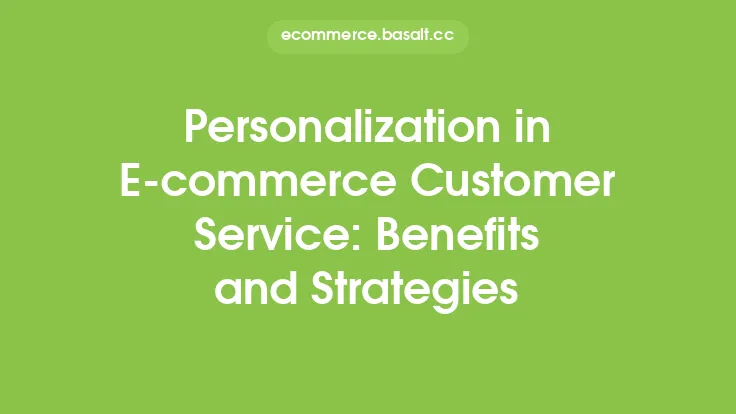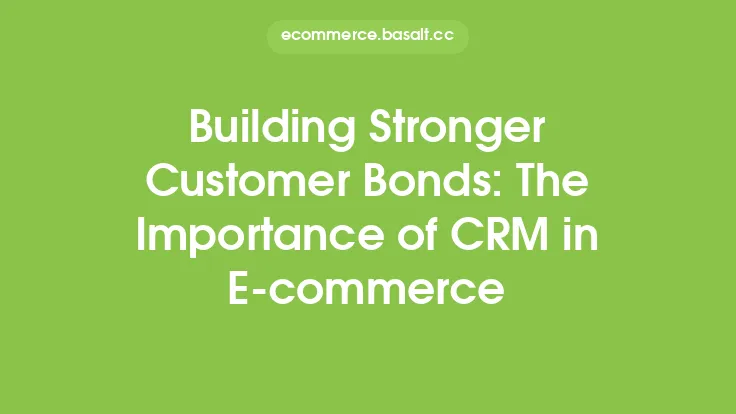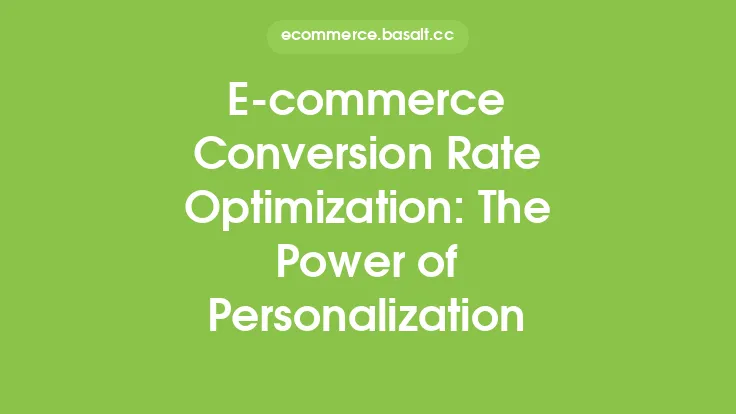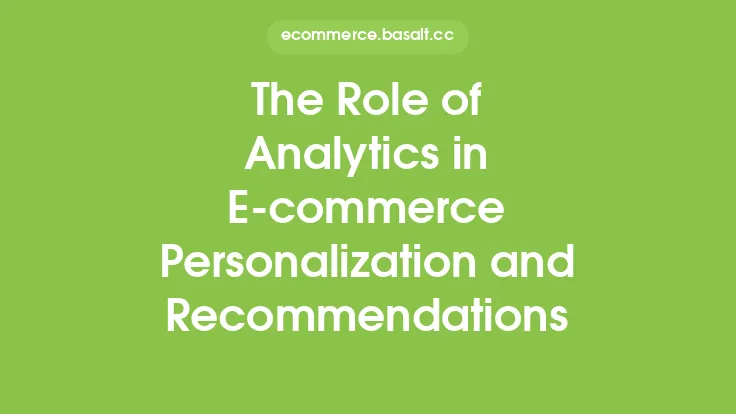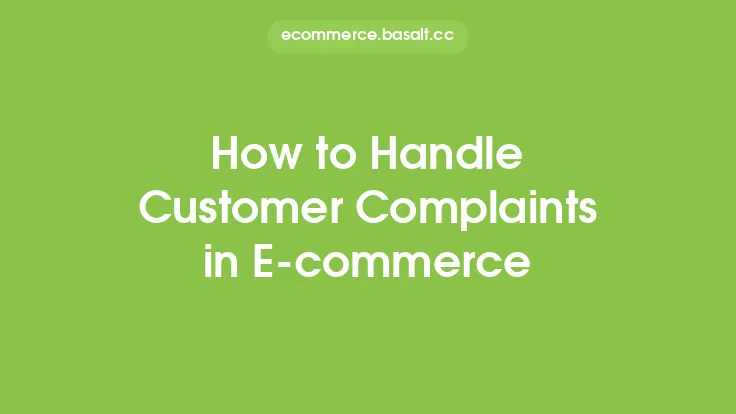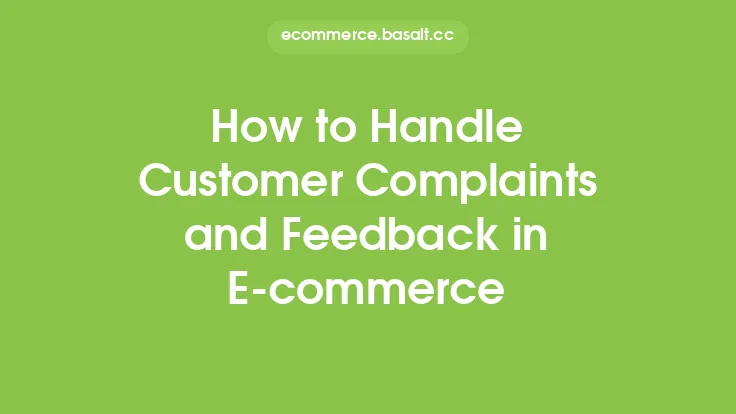In the realm of e-commerce, personalization has become a crucial element in enhancing customer satisfaction and driving business growth. With the abundance of online stores and the ease of switching between them, customers expect a tailored experience that caters to their individual needs and preferences. This is where Customer Relationship Management (CRM) systems come into play, offering a powerful tool to help e-commerce businesses deliver personalized experiences that foster loyalty and retention. At its core, CRM is about managing and analyzing customer interactions to create a deeper understanding of their behavior, preferences, and needs. By leveraging CRM, e-commerce businesses can gather valuable insights into customer data, enabling them to create targeted marketing campaigns, offer personalized product recommendations, and provide exceptional customer service.
What is Personalization in E-commerce?
Personalization in e-commerce refers to the practice of tailoring the online shopping experience to individual customers based on their preferences, behaviors, and interests. This can be achieved through various means, such as product recommendations, content personalization, and personalized marketing messages. Personalization helps to create a sense of connection with customers, making them feel valued and understood. By offering relevant and timely recommendations, e-commerce businesses can increase the chances of conversion, enhance customer satisfaction, and encourage repeat business. CRM systems play a vital role in personalization by providing a centralized platform to store and analyze customer data, enabling businesses to make informed decisions about their personalization strategies.
How CRM Can Help with Personalization
CRM systems can help e-commerce businesses with personalization in several ways. Firstly, CRM provides a single customer view, which enables businesses to access a comprehensive profile of each customer, including their contact information, purchase history, and interaction history. This information can be used to create targeted marketing campaigns, offer personalized product recommendations, and provide exceptional customer service. Secondly, CRM systems offer advanced analytics and reporting capabilities, which enable businesses to analyze customer behavior, identify trends, and predict future behavior. This information can be used to create personalized marketing messages, offer timely promotions, and enhance the overall customer experience. Finally, CRM systems can be integrated with other e-commerce systems, such as marketing automation and customer service software, to create a seamless and personalized experience across all touchpoints.
Key Features of CRM for Personalization
There are several key features of CRM systems that can help e-commerce businesses with personalization. These include:
- Customer profiling: CRM systems enable businesses to create detailed customer profiles, which can be used to store information about customer preferences, behaviors, and interests.
- Segmentation: CRM systems offer advanced segmentation capabilities, which enable businesses to divide their customer base into distinct groups based on demographics, behavior, and preferences.
- Personalized marketing: CRM systems can be used to create targeted marketing campaigns, which can be personalized based on customer preferences and behavior.
- Product recommendations: CRM systems can be integrated with product information management systems to offer personalized product recommendations based on customer purchase history and behavior.
- Customer service: CRM systems can be used to provide exceptional customer service, which can be personalized based on customer interaction history and preferences.
Benefits of Using CRM for Personalization
The benefits of using CRM for personalization in e-commerce are numerous. These include:
- Increased conversion rates: Personalization can increase the chances of conversion by offering relevant and timely recommendations.
- Enhanced customer satisfaction: Personalization can enhance customer satisfaction by creating a sense of connection with customers and making them feel valued and understood.
- Improved customer retention: Personalization can improve customer retention by creating a loyal customer base that is more likely to return and make repeat purchases.
- Competitive advantage: Personalization can create a competitive advantage by differentiating an e-commerce business from its competitors and creating a unique selling proposition.
Implementing CRM for Personalization
Implementing CRM for personalization requires a strategic approach. Firstly, e-commerce businesses need to define their personalization goals and objectives, which should be aligned with their overall business strategy. Secondly, businesses need to select a CRM system that meets their personalization needs, which should be based on factors such as scalability, flexibility, and integration with other e-commerce systems. Thirdly, businesses need to integrate their CRM system with other e-commerce systems, such as marketing automation and customer service software, to create a seamless and personalized experience across all touchpoints. Finally, businesses need to continuously monitor and evaluate their personalization strategies, which should be based on customer feedback, analytics, and reporting.
Best Practices for Using CRM for Personalization
There are several best practices for using CRM for personalization in e-commerce. These include:
- Collecting and analyzing customer data: E-commerce businesses should collect and analyze customer data to create a deeper understanding of customer behavior, preferences, and needs.
- Creating personalized content: Businesses should create personalized content, such as product recommendations and marketing messages, which should be based on customer preferences and behavior.
- Providing exceptional customer service: Businesses should provide exceptional customer service, which should be personalized based on customer interaction history and preferences.
- Continuously monitoring and evaluating: Businesses should continuously monitor and evaluate their personalization strategies, which should be based on customer feedback, analytics, and reporting.
- Integrating with other e-commerce systems: Businesses should integrate their CRM system with other e-commerce systems, such as marketing automation and customer service software, to create a seamless and personalized experience across all touchpoints.
Conclusion
In conclusion, personalization is a crucial element in e-commerce, and CRM systems can play a vital role in delivering personalized experiences that foster loyalty and retention. By leveraging CRM, e-commerce businesses can gather valuable insights into customer data, create targeted marketing campaigns, offer personalized product recommendations, and provide exceptional customer service. The benefits of using CRM for personalization are numerous, including increased conversion rates, enhanced customer satisfaction, improved customer retention, and a competitive advantage. By following best practices and implementing CRM strategically, e-commerce businesses can create a personalized experience that meets the unique needs and preferences of each customer, driving business growth and success in the competitive world of e-commerce.
